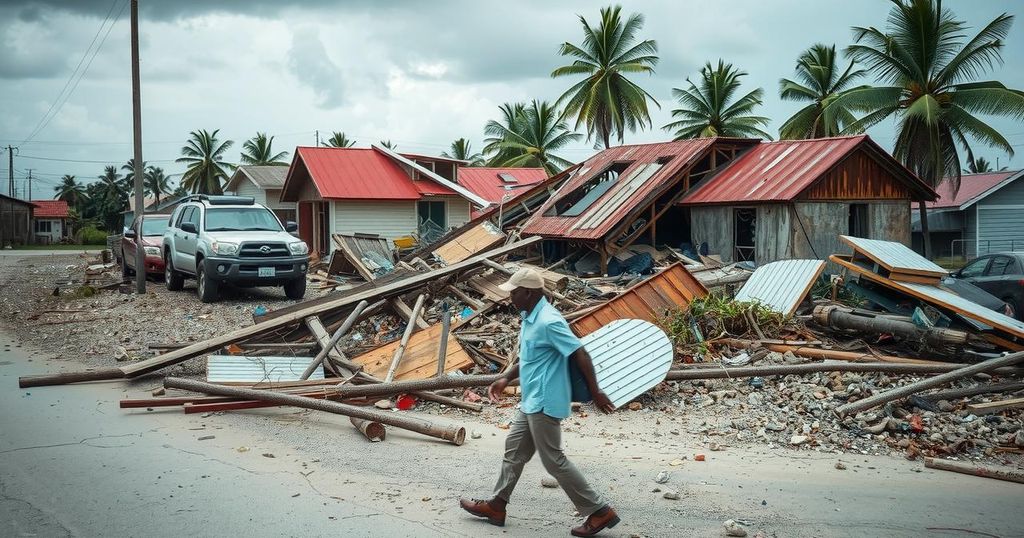Cyclone Chido Devastates Mozambique, Claims 34 Lives and Affects Millions

Cyclone Chido struck northern Mozambique, killing at least 34 and injuring 43, with significant destruction in Cabo Delgado province. Approximately 2.5 million people have been affected, with reports of nearly total destruction in the Mecufi district. Remnants of the storm continue to impact weather patterns in nearby regions, and concerns are rising regarding increased cyclone severity due to climate change.
Cyclone Chido, which struck Mozambique over the weekend, has resulted in the tragic loss of at least 34 lives and left 43 individuals injured. The National Institute for Disaster Risk Management and Reduction reports that the cyclone significantly impacted three northern provinces, leaving the destruction particularly severe in Cabo Delgado province, including its capital, Pemba. Preliminary assessments suggest that the cyclone has affected approximately 2.5 million people as rescue teams continue to search through the debris for survivors.
The cyclone made landfall in the Mecufi district, where almost all residential structures have been reported as either severely damaged or completely destroyed. Eyewitness accounts highlight the cyclone’s ferocity, with residents describing their homes being torn apart. Meteorologist Acacio Tembe has indicated that remnants of the storm persist, bringing continued rainfall and strong winds to various provinces, including Niassa and Cabo Delgado.
The cyclone formed part of a broader meteorological phenomenon that has also impacted Malawi and Mayotte, with forecasts indicating its eventual dissipation near Zimbabwe. Mozambique, already considered one of the nations most vulnerable to the effects of climate change, faces ongoing challenges due to seasonal flooding and recurrent tropical cyclones during the rainy season, which spans from October to April. Experts warn that with the potential La Niña conditions expected in early 2025, the frequency and severity of such weather events could escalate in the region.
Mozambique is frequently subject to severe weather events due to its geographic position and susceptibility to climate change. The nation experiences a rainy season extending from October to April, which is characterized by recurrent floods and tropical cyclones. Cyclone Chido represents one of the latest incidents in a pattern of increasingly extreme weather that threatens not only the infrastructure of the country but also the lives and livelihoods of millions. The government and disaster management agencies strive to mitigate the effects of these disasters, but their capacity is often overwhelmed by the scale of the damage and the frequency of such occurrences.
In summary, Cyclone Chido has inflicted significant casualties and extensive damage across northern Mozambique, highlighting the country’s vulnerability to climate-related disasters. The event has affected millions, raising further concerns regarding the frequency of such occurrences amid ongoing climate change challenges. As Mozambique and the surrounding region brace for potential additional climatic events, emergency response efforts remain vital to aid the recovery of affected communities.
Original Source: www.voanews.com








